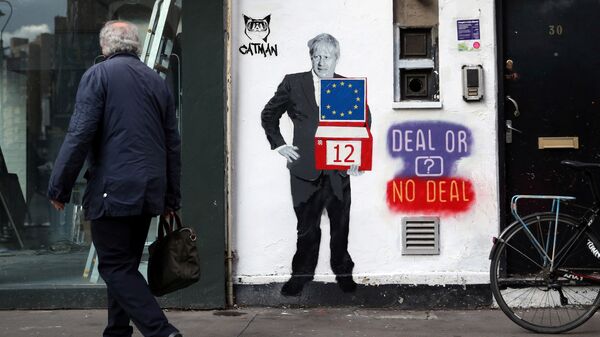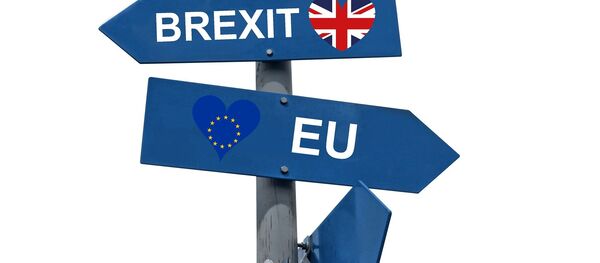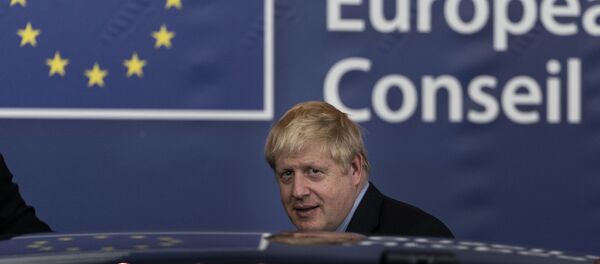The European Union will grant a Brexit extension if Prime Minister Boris Johnson sends a letter, Brussels said, according to The Guardian.
Earlier, MPs passed a backbench amendment to withhold support for Prime Minister's Brexit deal, thus ensuring a delay to the UK's divorce from the EU.
Lawmakers voted 322 to 306 on an amendment tabled by independent MP Oliver Letwin withholding approval on the Brexit deal until the necessary legislation to implement it has been passed, thus mandating Johnson to delay Brexit in accordance with the terms of the Benn Act, a September 9 act of parliament requiring the PM to ask the EU to extend the Brexit withdrawal date until January 31, 2020.
But Prime Minister Johnson said he would not negotiate a delay, adding that he could not be legally compelled to do so, and that he was neither "daunted or dismayed" by the result of the vote.
"I will not negotiate a delay with the EU and neither does the law compel me to do so," Johnson said. "I will tell our friends and colleagues in the EU exactly what I have told everyone else in the last 88 days that I have served as prime minister: that further delay would be bad for this country, bad for the European Union and bad for democracy," Johnson said.
Johnson promised to put hold the so-called 'meaningful' vote on Brexit next Tuesday.
Labour leader Jeremy Corbyn said he welcomed Saturday's vote, saying the prime minister must now comply with the law. "He can no longer use the threat of a no-deal crash out to blackmail members to support his sell-out deal."
The European Union reacted to the vote by urging London to explain its Brexit next step. European Commission spokeswoman Mina Andreeva indicated that Brussels had taken note of the vote. "It will be for the UK government to inform us about the next steps as soon as possible," she tweeted.
🇪🇺🇬🇧 @EU_Commission takes note of the vote in the House of Commons today on the so-called #Letwin Amendment meaning that the #WithdrawalAgreement itself was not put to vote today. It will be for the UK government to inform us about the next steps as soon as possible.
— Mina Andreeva (@Mina_Andreeva) 19 октября 2019 г.
'Healing the Rift'
During the debate before of the vote, Johnson told lawmakers that the deal his government had managed to hammer out with Brussels would help heal the rift in British politics. He added that there was little appetite left among European Union’s other members to see another delay in the vote.
The UK-EU deal proposed by Johnson came together on Thursday after London proposed a resolution to the so-called Irish backstop issue, which had served as the main stumbling block in negotiations. Johnson called the Irish border breakthrough a “vast, vast, vast step forward.” According Irish broadcaster RTE, which says it has seen a leaked copy of the plan, the solution to the backstop proposes customs clearance sites located between five and 10 miles on either side of the Ireland-Northern Ireland border, and/or tracking devices on truckers’ vehicles monitoring them in real time and using digital customs declarations created online. The proposal also allowed Northern Ireland to continue to align with EU regulations on agriculture, with Johnson calling that measure a major concession on London’s part.
Ahead of the vote, Labour had promised to try to postpone Brexit and force the prime minister to request another extension until January 31. However, Scottish Prime Minister Nicola Sturgeon warned Friday that some Labour MPs might rebel against leader Jeremy Corbyn and support the Johnson deal.
Facing a divided parliament and no majority, the government needed the support of at least 320 of the parliament’s 650 lawmakers to get the deal done. Johnson has made Brexit one of the key planks of his leadership, and colourfully said last month that he would “rather be dead in a ditch” than see Brexit delayed beyond the October 31 deadline.
Oliver Letwin, author of the amendment to withhold support for Brexit until the deal was passed, insisted that his aim was "to ensure that Boris's deal succeeds." Letwin became an independent after being kicked out the Conservative Party for refusing to agree to a possible no-deal scenario.
Britons voted to leave the European Union in a referendum in June 2016, with 51.89 percent voting to leave the bloc and 48.11 percent voting to remain. The UK joined the European Community (which later became the EU), on January 1, 1973.





